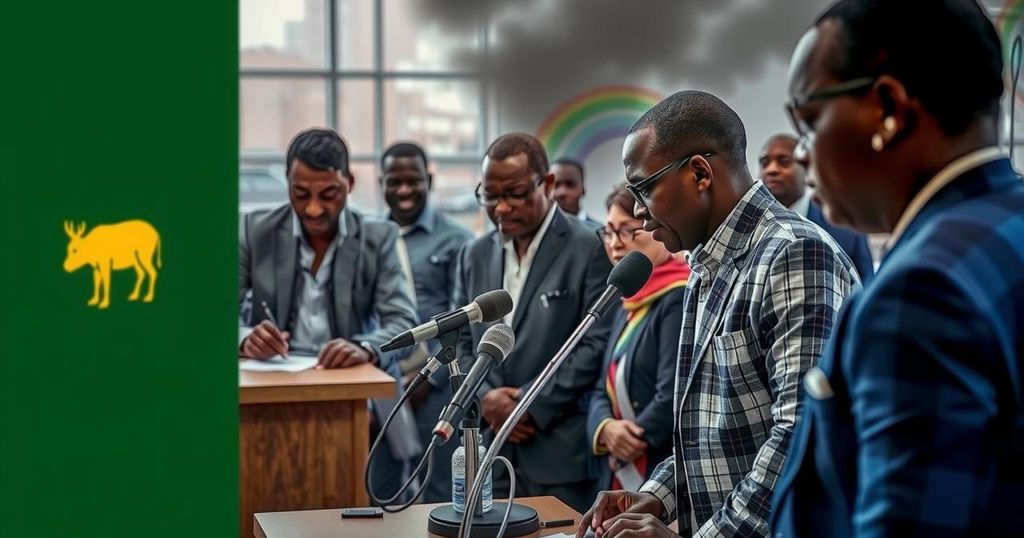Namibia’s Electoral Crisis: Irregularities Prompt Voting Extension Amid Tensions

Namibia is in electoral disarray following an extension of voting due to irregularities, including logistical failures that led to long wait times. The opposition IPC aims to end Swapo’s 34-year dominance amid youth disenchantment. The elections coincide with similar unrest in Mozambique, emphasizing regional instability.
Namibia is currently experiencing significant electoral turmoil following a controversial extension of its presidential and parliamentary elections due to reported irregularities. Voting, initially scheduled to conclude on Thursday, has been extended to Saturday night owing to logistical failures, including shortages of ballot papers and malfunctioning electronic voting tablets, leading to long queues for voters.
The Electoral Commission of Namibia (ECN) acknowledged these issues while urging citizens to fulfill their voting responsibilities. Meanwhile, the opposition party, Independent Patriots for Change (IPC), is attempting to dismantle the long-standing dominance of the South West Africa People’s Organisation (Swapo), which has governed since Namibia’s independence in 1990. IPC presidential candidate Panduleni Itula expressed the necessity for voters to proceed with the electoral process despite their frustrations regarding the irregularities.
The political landscape is further complicated by the historical context of Namibia, a former German colony that underwent South African rule, with the Black majority facing systemic oppression. Swapo’s current candidate, Netumbo Nandi-Ndaitwah, seeks to become the first female president of the resource-rich nation amid rising dissatisfaction from the young population regarding economic opportunities and inequality. Observers are questioning whether Swapo may face a loss similar to other liberation parties in Southern Africa that are experiencing declining voter support.
Namibia has a complex historical background that has shaped its current political landscape. Since gaining independence in 1990, the South West Africa People’s Organisation (Swapo) has maintained political dominance, despite growing dissatisfaction among citizens, particularly the youth, regarding economic inequality. The recent electoral problems have drawn parallels with electoral unrest in neighboring Mozambique, highlighting regional issues surrounding governance and electoral integrity. The current elections are viewed as a critical point for potential political change in Namibia.
The ongoing electoral challenges in Namibia underscore significant tensions within the country’s political framework. As voters grapple with logistical failures and mounting frustrations, the opposition seeks to capitalize on these circumstances to challenge Swapo’s longstanding rule. The outcome of this election will have lasting implications for Namibia’s political future and may reflect broader trends in regional governance.
Original Source: www.aljazeera.com






